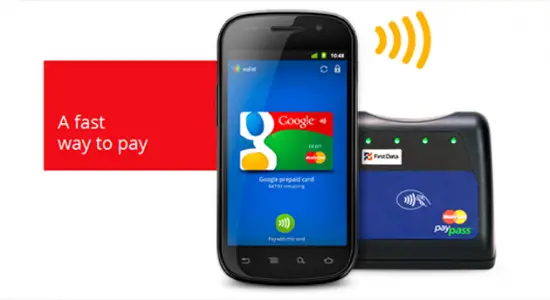

First of all, it must work even when there is no data network available. There are competing priorities regarding security in any NFC payment system. If a thief steals a smartphone, and tries to reveal the credit card information, Google Wallet will lock up completely after a few failed PIN attempts. This is the additional security that traditional physical credit cards do not have and is what the NFC providers are proclaiming makes the security of their system so much better. In order to authenticate users and grant access to the SE, Google Wallet requires a 4-digit, numeric PIN (Personal Identification Number) when first launching the app. This is the core security layer of NFC payment systems. Access to the SE is highly regulated and it is designed to resist tampering, possibly even engaging a self-destruct mechanism to protect its data. In order to facilitate secure communication, a device, similar to a Smart Card, called a Secure Element (SE), is used to store and encrypt, for broadcast, the most sensitive data such as the complete credit card number. NFC is based on Radio Frequency Identification ( RFID) to communicate wirelessly. However, their analysis has only scratched the surface. NFC Security OverviewĪs Google Wallet is the only system released to the public, its security has just begun to be vetted by such reputable organizations as viaForensics. Furthermore, it seems that very recently some carriers like AT&T may be changing their tune and may eventually allow Google Wallet on devices on their network. Also of note is that very few cell phones have NFC capability today, but that is rapidly changing with the advent of smartphones like the Samsung Galaxy Nexus. One possible reason for this is that these three networks are engaged in a joint venture called ISIS that is a direct competitor of Google Wallet. There have been many discussions of the fact that the other three major networks (Verizon, AT&T and T-Mobile) disallow the Google Wallet app on their networks. is “Google Wallet.” It is only officially available for one smartphone and on one wireless service provider – the Samsung Nexus S 4G on Sprint.

So far, the only publicly available NFC-based payment system in the U.S. It is up to the owner to report theft and unauthorized transactions. Credit cards traditionally have no security. There are many benefits to using smartphone payment systems as opposed to a physical credit card – not the least of which is the potential for much better security.


 0 kommentar(er)
0 kommentar(er)
